Traditional Owner Reef Protection
Improving the engagement of Traditional Owners in the protection of the Great Barrier Reef World Heritage Area.
The Great Barrier Reef Foundation extends its deepest respect and recognition to all Traditional Owners of the Great Barrier Reef and its Catchment as First Nations Peoples, recognising past, present, and future generations to come.
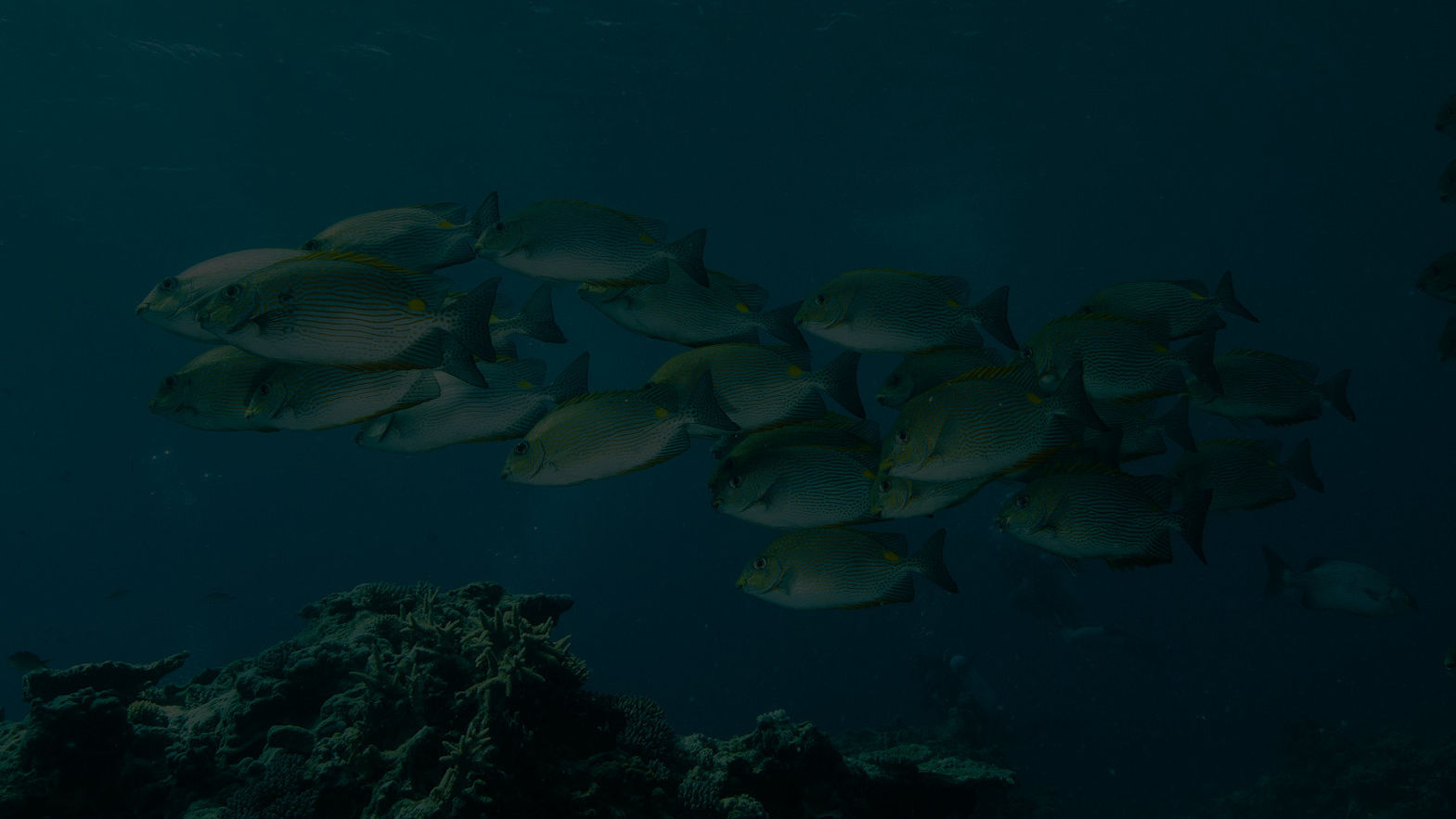
#The largest ever single investment in Traditional Owner Reef Protection.
Budget: $51.8 million.
For more than 25 years, Traditional Owners from across the Reef have been coming together to explore and call for a collective approach to achieving their rights and aspirations for ownership, access to, and involvement in the formal governance and management of Sea Country.
The Traditional Owner Reef Protection component is building the foundational pillars needed to deliver these aspirations, creating stronger Indigenous-led processes and the step-change needed for sustaining inclusive governance and management of the Reef, while recognising cultural values and diversity.
Through the Partnership’s Investment Strategy, the Foundation secured the largest single investment in Traditional Owner Reef Protection to date. On top of the $12 million initially earmarked for Indigenous Reef Protection in the Grant Agreement, the Foundation allocated additional funding from across the Partnership components to deliver $51.8 million in total towards co-designed, Traditional Owner-led Reef protection. This is intended to build on and scale up the work already being done by Traditional Owners along the Reef and its Catchment, including more than 200 Rangers and 70 Land and Sea Country groups.
#End of Partnership Outcomes
The Reef Trust Partnership’s Traditional Owner Reef Protection component will result in:
A Traditional Owner co-design action framework implemented
Improved benefits to Traditional Owners engaged in Land and Sea Country management
Improved Traditional Owner participation in Reef governance
The first stage of a Great Barrier Reef Traditional Owner Future Fund in place and operating effectively
Traditional Owner on-Country activities contributing to Reef bio-cultural health
Improved cultural awareness within Partnership projects and partners
#Progress Dashboard
Transparency and accountability are key guiding principles for the Foundation in delivering the Reef Trust Partnership.
A series of interactive dashboards has been developed as part of our Monitoring and Evaluation Plan. The dashboards are updated every six months to demonstrate progress towards meeting End-of-Partnership Outcomes. The following dashboard provides a snapshot of key progress areas that deliver the Traditional Owner Reef Protection Component’s end-of-Partnership outcomes.
Find out more about the RTP progress dashboards in these Frequently Asked Questions.
#Partnership Activities
Our five-year plan for the Traditional Owner Reef Protection component includes the following Partnership Activities:
Drive Indigenous innovation, leadership and collaboration in Reef protection
This involves embedding Traditional Owner governance across the portfolio, Traditional Owner leadership and capacity building, strategic communication and engagement with Traditional Owners, and delivering a co-design action framework.
Activate Traditional Owner-led Reef protection activities
This involves open grant rounds and activities specific to each of the Partnership's components: Water Quality, Integrated Monitoring and Reporting, Crown-of-Thorns Starfish Control and Reef Restoration and Adaptation Science.
Launch a Traditional Owner Future Fund
Independent and sustainable financing is needed to support governance, future leadership activities (such as student scholarships) and strategic investments which build Traditional Owner capacity and capability in Reef management.
#Traditional Owner-led Reef protection activities:
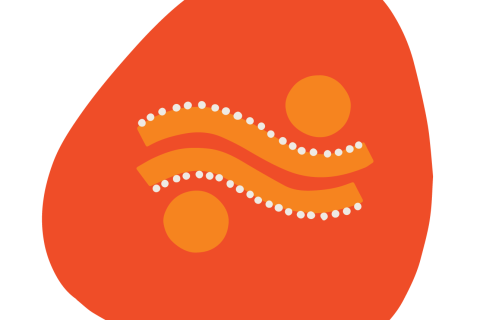
Crown-of-thorns starfish control
This work supports activities that improve Traditional Owner participation in crown-of-thorns starfish control and facilitates training and service delivery partnerships.
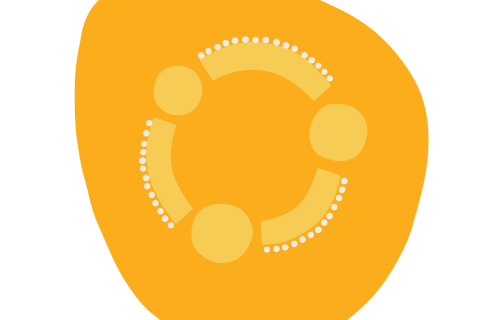
Reef monitoring and reporting
This work aims to implement the Strong Peoples – Strong Country framework including negotiation of data sharing agreements, audit of monitoring skills, tools and assets, and development and implementation of education and employment pathways.
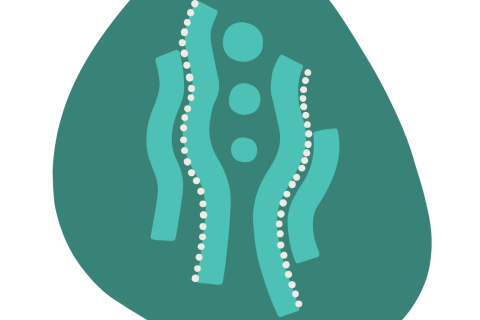
Reef restoration and adaptation
This work aims to improve Traditional Owner access to and active participation in Reef restoration and adaptation projects.
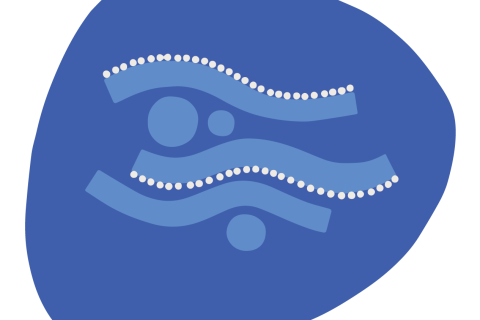
Healthy water
This work aims to improve Traditional Owner access to and active participation in water quality projects through grants, a water literacy toolkit, and the assistance from a coordinator.
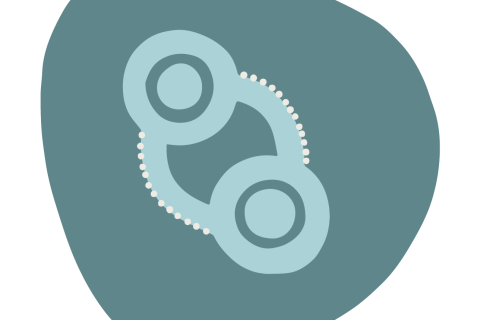
Stage One Grants
The first open grant round was co-designed with the Traditional Owner Advisory Group and launched in early 2019. This $1.8 million program addresses three key focus areas:
1) Country-based planning
2) implementation of existing Country-based plans
3) junior ranger activities

Stage Two Grants
This $2 million investment supports Traditional Owner capacity building, training, innovation, planning and on-ground activities across the Water Quality, Crown-of-Thorns Starfish Control, Reef Restoration and Adaptation Science and Integrated Monitoring and Reporting components.
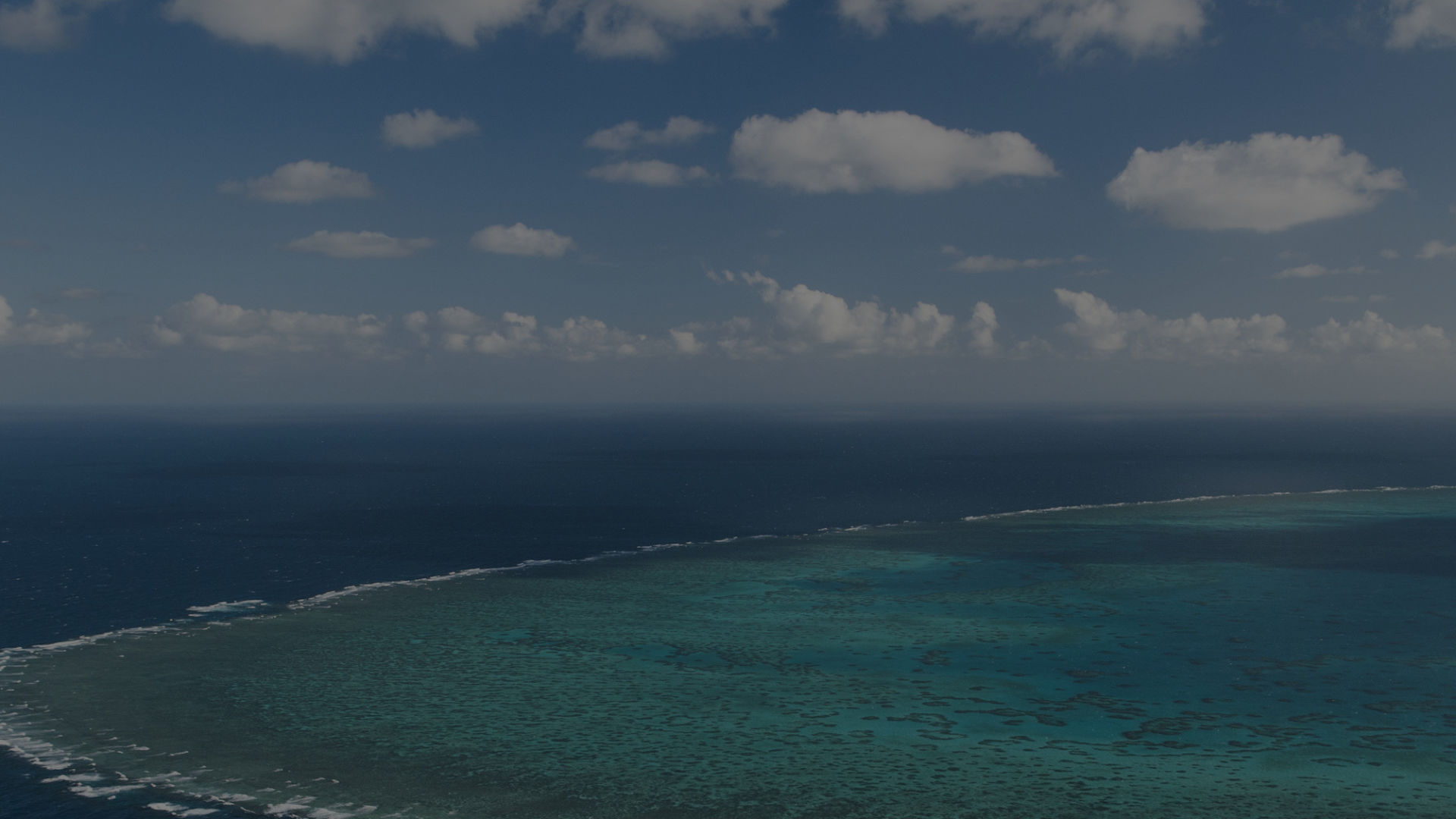
#Co-Design Action Framework
Positive progress has been made to co-design and co-deliver a fit for purpose investment strategy for the Partnership's Traditional Owner Reef Protection activities, to actively address Traditional Owner priorities for Land and Sea Country.
In May 2019, the Foundation hosted a Reef-wide co-design workshop with Traditional Owners of the Reef and its Catchment.
This workshop produced the initial design elements for the Traditional Owners Futures Fund as well as the Traditional Owner-led Reef protection activities under the Partnership.
These initial design elements have been foundational in the ongoing design of activities and projects under the Partnership's Traditional Owner Reef Protection component.
From this workshop, our Traditional Owner Advisory Group and Technical Working Groups continue to develop a comprehensive Traditional Owner Reef protection program.
#Traditional Owner Governance
To ensure fair, equitable and active participation from Traditional Owners within the formal governance arrangements of the Partnership, the Foundation has established a strong Traditional Owner governance arrangement to underpin the co-design and co-delivery of the Reef Trust Partnership.
#Empowering understanding through design
The following designs visually describe the priorities of the Traditional Owner Reef Protection component:
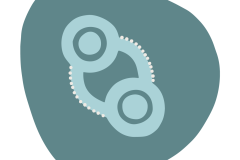
Innovation, leadership and collaboration
The symbol represents the strength in working collaboratively together to thrive (innovate). When we work together, and combine the knowledge we bring, the reef has a better chance of thriving.
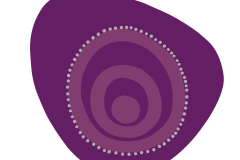
Future Fund
The Future Fund symbol reflects the positive growth of the community, and future generations. By investing in communities and future generations, we build a bright future for the reef to thrive (dots).
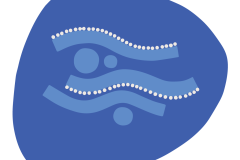
Healthy Water
Healthy water is reflected through the natural shape and flow of waterways, as well as the waves. The symbol reflects both the movements of the sea, as well as the shape of rivers and catchments. The dots represent the thriving quality of healthy water ways, and the life that runs through them.
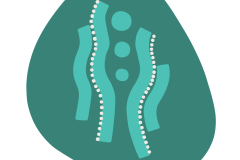
Reef restoration and adaptation
The symbol represents the thriving ideals of a restored reef, the growth in coral and sea life, and the growth from what it is now to the hopeful future (the 3 circles). The dots represent the thriving life that a restored and healthy reef brings. The symbol also subtly looks like a caring hand helping the reef to grow.
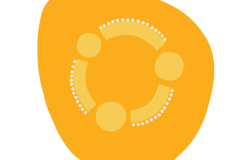
Reef monitoring and reporting
This symbol looks at the importance of sharing and storing knowledge for future generations. The symbol has two representations: the first being the literal idea of keeping track of life within the reef (the cycle of life); the second being knowledge from past, present and future working together to care for the reef. The dots represent the importance of the cycle.
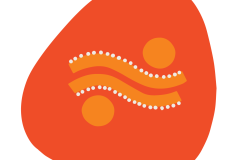
Crown-of-thorns starfish control
This symbol reflects the purpose of this program: to restore balance to the ecosystem. When there is an imbalance, it threatens the health of our Reef, but when there is balance, we give it a chance to thrive.
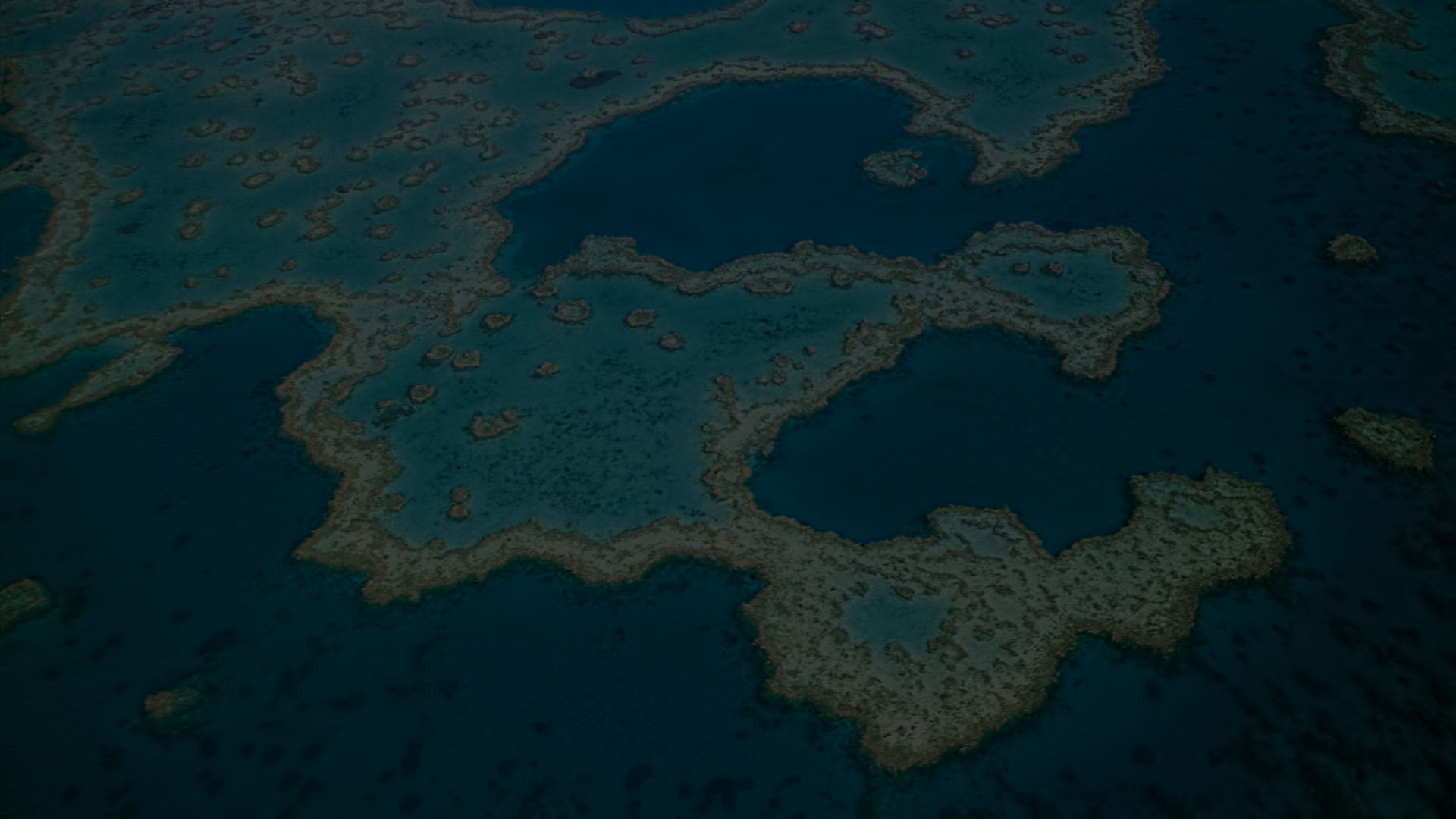
#Projects
Under the overarching Partnership Activities in our
Annual Work Plan sits a suite of Projects.
Projects include both our impact-driven, largely on-ground actions being delivered by Traditional Owners, as well as a small number of enabling and supporting activities that together, will achieve the End of Partnership Outcomes.
Below is a summary of the on-ground projects funded so far under the Traditional Owner Reef Protection component.
#Stage One Grants
The first stage of Traditional Owner grants was co-designed with our Traditional Owner Advisory Group and launched in early 2019. This $1.8 million program addresses three key focus areas: Country-based planning, implementation of existing Country-based plans and junior ranger activities.
Wuthathi Rangers Caring for Land and Sea
Location: Shelburn Bay & Lockhart River
The Wuthathi Rangers Caring for Land and Sea Project will enhance the provision of ranger services to the Shelburn Bay and Lockhart River area. Traditional Owners have worked with researchers to demonstrate that Shelburn Bay is a unique landscape of high ecological and cultural importance, and rangers will work closely with Wuthathi Traditional Owners to manage their land and sea.
Gidarjil Cadet and Junior Ranger Program – PCCC Future Makers
Traditional Owner Groups: Byelee; Gurang; Goreng Goreng and Tarebilang Bunda
Location: Port Curtis Coral Coast (Bundaberg and Gladstone)
The Gidarjil Cadet and Junior Ranger Program will establish a “Cadet” Ranger Program aimed at junior secondary school students that have graduated from the established Junior Ranger Program. Cadets will collaborate with Indigenous rangers from the Gidarjil Caring for Country (CFC) and Land & Sea Rangers (BLSR) on key environmental activities carried out during three and five-day camps. The project aims for collaborative management and monitoring by “cadet rangers” of sea-grass meadows, salt-marshes, fox predation of turtle nests, burns of coastal vegetation and acquisition of traditional knowledge through cultural immersion camps between Rodd’s Peninsula and Baffle Creek.
Mandubarra Junior Ranger Project
Location: Mandubarra Sea Country - South of the Mourilyan Harbour to Maria Creek
The Mandubarra Junior Ranger Project will establish a strategy and protocols for who, how, when and why cultural knowledge is shared. Through the development of educational tools and delivery of camps and other events, Mandubarra elders will share traditional wisdom and culture, transferring knowledge to young Traditional Owners and increasing awareness and respect of Mandubarra culture amongst the wider community.
Jabalbina Daintree Coast, Reef and Islands Management Plan
Traditional Owner Group: Eastern Kuku Yalanji
Location: Eastern Kuku Yalanji country runs along the East Coast of Far North Queensland and it includes land and sea between Port Douglas and just south of Cooktown.
This project will develop governance arrangements, management protocols and strategies to close gaps in effective management of Jabalbina Sea Country. As healthy sea country underpins livelihoods in land and sea management and tourism industries, the plan will also create a framework to create further employment and business opportunities for local communities.
Belbendimin Wulgun Djau (Caring for Sea Country): building the resilience of coral and oyster reefs.
Traditional Owner Groups: Byellee, Gurang, Goreng Goreng and Tarebilang Bunda
Location: Mackay/Capricorn. The sea country includes all coastal areas between Balaclava Island and Burrum Heads, including Lady Elliot and North West Islands
This project aligns with the vision and objectives of the PCCC Sea Country Management Plan 2019–2025 and addresses the priorities of the PCCC TUMRA (Traditional Use of Marine Resources Agreement) which describes how Traditional Owners manage their sea resources within the Great Barrier Reef Marine Park. The project will address the major knowledge gaps that exist regarding in-shore coral reefs, oyster reefs and water quality in the southern GBR.
Girringun Junior Ranger Camp
Traditional Owner Groups: Bandjin, Djiru, Girramay, Gugu Badhun, Gulngay, Jirrbal, Nyawigi, Warrgamay and Warungnu
Location: The flood plains and coastal areas between North Maria Creek near Mission Beach to Rollingstone in the south, including offshore islands and waters within this region.
The Girringun Junior Ranger Camp will bring together Elders and rangers to share cultural knowledge of Girringun Sea Country to young people across the nine Traditional Owner groups that Girringun Aboriginal Corporation represents. This project presents an opportunity to maintain and preserve cultural practices, and way of life, in a way that meaningfully engages young people and strengthens their traditional knowledge and sense of belonging to community.
YBM Annan River and coast line critical values and habitats: healthy waters for our people
Location: Archer Point and surrounding rivers and streams
This project is about establishing long-term monitoring programs which collect scientific and critical cultural information across many different areas including water quality, fish communities, mangroves, key cultural species and impacts such as pollution, plastics and marine debris on Yuku Baja Muliku Country. This will facilitate formal opportunities for Traditional Owners, scientists and NRM managers to work together to collect and record data and for everyone to look at data analysis together so that YBM Traditional Owners can make informed decisions about how to best look after their Country.
Wuthathi Caring and Connecting with Land & Culture
Location: Cape York - Shelburn Bay
This project will establish a Junior Ranger Program that coincides with school holidays and is based on visits to Wuthathi Country adjacent to and on Shelburn Bay. The program will reconnect youth to their culture through caring for their land using traditional and scientific approaches and on-going mentoring that will equip participants to be future leaders.
Yirrganydji Junior Ranger Program – Empowering Today’s Generation for Tomorrow’s Future
Traditional Owner Group: Yirrganydji
Location: Coastal region between Cairns and Port Douglas including wetlands of national significance.
The Yirraganyji Junior Ranger Program will improve general understanding and highlight any pressures impacting Yirrganydji Country, as well as encourage behaviour change while providing an engaging way for local children (both Indigenous and non-Indigenous) to learn about looking after Country today and into the future. The program will be developed in partnership with schools in the Cairns and Port Douglas area, complementing the Australian STEM curriculum with Aboriginal and Torres Strait Islander Histories and Cultures, embedding the culture and knowledge of Yirrganydji people within environmental education programs.
Girringun Maritime Project
Traditional Owner Groups Represented: Banjin, Djuru, Girramay, Gulnay, Nywaigi and Warrgamay
Location: The flood plains and coastal areas between North Maria Creek near Mission Beach to the north and Rollingstone to the south, as well as all offshore islands and waters within this region of northern Queensland.
This project will provide support for rangers to undertake training with an Indigenous Maritime Training Company to obtain formal maritime qualifications in Deckhand and Coxswains certificates. These qualifications will enhance the ability of rangers to look after their vast areas of sea country.
Yuku-Baja-Muliku Junior Ranger Project
Traditional Owner Group Represented: Yuku Baja Muliku
Location: Archer Point
A full-time Junior ranger co-ordinator will be funded to operate and expand the existing successful program that is currently run in Cooktown. The YBM Junior Ranger Program runs weekly after school and has been supported and run by YBM Indigenous rangers in the past. With a dedicated project officer in place, the program can be expanded, and many more environmental and cultural extension activities can be designed and delivered. In addition to the junior ranger program, the coordinator will be able to drive the establishment of the YBM Cadet Ranger Program for high school aged students.
Dabu Jajikal Land and Sea Country Planning Project
Traditional Owner Group: Dabu Jajikal Aboriginal Corp
Location: Emmagen Creek to Obree Point and out to Hope Island. Country extends out to Bloomfield River/ Lilly Creek and Imagen Creek. Areas to be included in the plan are Cedar Bay; Weary Bay; Bloomfield River and Cape Tribulation.
Development of a sea country plan by Traditional Owners in partnership with other stakeholders. The sea country plan will be developed through a series of on-country meetings and workshops and will culminate in the production of a plan in the form of a book, video and audio recordings. Future workshops will also be planned to ensure commitments made during the initial phases are acted on.
Juru Land and Sea Country Planning Project
Traditional Owner Group: Juru People
Location: From the Burdekin River to south of Bowen
The Juru people want to protect all heritage areas whilst maintaining, developing and strengthening the culture and heritage values and Lores of the Juru peoples. A management plan will be created by identifying, collating and reviewing existing information, reports, data and knowledge of heritage areas within the project site. This will be the foundation for Traditional Owners to develop and sustain strong partnerships with Government and NGOs to protect Country and the marine estate. The project will provide a platform for Traditional Owners to discuss and document their aspirations for management of their Country.
Goondoi Junior Rangers Program
Traditional Owner Group: Dyirrabarra & Bagirgabara
Location: The sea area takes in the northern point of Ella Bay National Park and extends south to Mourilyan Harbour.
The Goondoi Junior Rangers Program will provide opportunities for elders to spend time with young ones to pass on cultural knowledge about their country. This will be done through school-based activities and camps.
Implementing Yirrganydji Sea Country Plan - Empowering Today’s Generation for Tomorrow’s Future
Traditional Owner Group: Yirrganydji
Location: Coastal region between Cairns and Port Douglas including wetlands of national significance.
This project will take the next step in Yirrganydji’s management journey and establish a clear pathway for the future management of the ecological and cultural values and aspirations set out in their community endorsed Sea Country Plan. This includes activities such as: establishing a Yirrganydji ‘Keeping Place’ to preserve, protect, and promote traditional knowledge, developing a Yirrganydji cultural heritage policy, and a cultural landscape atlas that maps bio-cultural values and knowledge.
Wulgurukaba Land & Sea Country Renewal and Planning
Traditional Owner Group: Wulgurukaba
Location: Ross River to Rollingstone. This includes Townsville, Magnetic Island and surrounds.
The project supports the Wulgurukaba Traditional Owners to revisit their existing Sea Country Plan in order to address gaps and establish baselines relating to resources. The area of sea country for which the plan is being renewed is the subject of significant development pressure making an updated Sea Country Plan important for the management of the area.
Cape York GBR Sea Country Management Plan
Traditional Owner Group Represented: Gudang & Yadhaykenu Clans
Location: Northern Cape York Peninsula - Captain Billy Landing to North of Mt Adolphus Island at the tip of Cape York. East past the Great Barrier Reef. Inclusive of the Denham Islands.
A country-based plan will be developed by the two Traditional Owner clans with cultural authority for the Northern Peninsular Area of Cape York, Great Barrier Reef. This project will greatly assist the Traditional Owners to develop a coordinated approach to the management of their sea country areas and to apply community authorised strategies that look to address natural resource management and sustainable use.
Healthy Country Planning for Normanby Station
Traditional Owner Group: Balnggarrawarra
Location: Normanby Station, North east from Cooktown in the Southern Cape York Region.
Normanby Station is situated in the heart of the fourth largest Great Barrier Reef river catchment. This project will see a Country plan created that will guide future land management practices, stakeholder investment and business enterprises whilst ensuring compatibility with customary obligations. This project links cultural values and natural values.
#Stage Two Grants
This $1.4 million program is strengthening and supporting Traditional Owner led reef protection on-ground activities across three components: Crown-of-thorns starfish (COTS) Control, Integrated Monitoring and Reporting and Reef Restoration and Adaptation Science
Jabalbina Yalanji Monitoring, Evaluation and Reporting Program –Tracking and sharing the health of our cultural and environmental values
Recipient: Jabalbina Yalanji Aboriginal Corporation RNTBC
TO Groups: Kuku Yalanjiwarra & Jalanjiwarra Clan Groups
Budget: $150,000
Developing and implementing an integrated monitoring, evaluation, and reporting (MER) program for the cultural and natural values of Eastern Kuku Yanji (EKY) country, to be delivered by Jabalbina Yalanji Aboriginal Corporation (JYAC).
Yuku Baja Muliku Monitoring, Evaluation and Reporting Program
Recipient TO Group: Yuku Baja Muliku
Budget: $299,239.60
Developing and implementing an integrated monitoring, evaluation, and reporting (MER) program for the cultural and natural values of Yuku Baja Muliku Country. This project is also providing training for YBM Women Rangers in the use of drone technology and drone data for managing Land and Sea Country.
The project is focused on the Annan River and its estuary and coastline and intertidal areas around Archer Point (south of Cooktown).
Seagrass monitoring and protection in Wuthathi Sea Country
Recipient TO Group: Wuthathi Aboriginal Corporation
Budget: $149,710
Building capacity and upskilling Wuthathi Traditional Owners through a combination of workshops and on-Country surveying in Shelburne Bay.
Yuwi cultural heritage mapping and monitoring system
Recipient: Yuwi Aboriginal Corporation RNTBC
TO Group: Yuwi Aboriginal Corporation
Budget: $150,000
Customising and implementing a cultural and environmental information management system (CEIMS) for Yuwi Aboriginal Corporation (YAC) that will be used to record, manage and monitor cultural and environmental heritage of Country amid increasing development. This will enable Yuwi to be more proactive/take the lead in cultural heritage assessments for developments that are frequently occurring on their Country.
Lifeblood of our People: Our Land and Sea Country, healthy waterways and the Reef
Recipient: Girringun Aboriginal Corporation
TO Groups: Bandjin, Djiru, Girramay, Gugu Badhun, Glungay, Jirrbal, Nywaigi, Warrungnu & Warrgamay peoples
Budget: $297,000
Confirming and ratifying an agreed regional-scale Traditional Owner governance framework to support on-going Reef monitoring & management outcomes for the GBR and seven GBR catchments within the nine Countries of Bandjin, Djiru, Girramay, Gugu Badhun, Glungay, Jirrbal, Nywaigi, Warrungnu & Warrgamay peoples.
The project is formalizing confirmation of agreed cultural protocols; and assisting in the identification and documentation of Traditional Owner biocultural ethics. Biocultural guidelines, principles and practices may be made available more generally for adoption by agencies, institutions, and private sector partners undertaking Reef restoration and adaptation activities.
Darumbal Capacity Building Crown-of-Thorns Starfish Management
Recipient: Tunuba Pty Ltd (Auspicing Darumbal Enterprises Pty Ltd & Toonooba Darumbal Pty Ltd
TO Group: Darumbal Enterprises Pty Ltd & Toonooba Darumbal Pty Ltd as trustee for the Darumbul Charitable trust
Budget: $39,680
Recruiting and training four Darumbal TO’s to undertake SCUBA and COTS training so they have the capability to undertake the management of COTS within their Sea Country in partnership with GBRMPA.
Building the Resilience of Coral Reefs in PCCC Sea Country, Southern GBR
Recipient: Gidarjil Development Corporation
TO Groups: The Port Curtis Coral Coast Traditional Owners/ Gidarjl Development Corporation
Budget: $299,853
Protecting, monitoring, and building the resilience of the Port Curtis Coral Coast Sea Country, including inshore and offshore coral reefs. Building on a previous Foundation-funded coral reef monitoring project, COTS training is being provided to Gidarjil rangers to monitor and control COTS on their Sea County & enable them to be a preferred COTS provider.
Coral reef monitoring sites are also being expanded, including culturally important seaweed, in southern GBR (Capricorn Bunker group including Lady Elliot Island and Lady Musgrave) to fill data gaps.
This project is also scoping a coral nursery/coral gardening project for future funding. Collaborating with Butchulla Aboriginal Corporation, USC, Inloc Training, Waters Marine.
#Healthy Water Grants
This $3.5 million program is the first major opportunity for Traditional Owner- led grants to improve the quality of water flowing to our Reef.
Building Traditional Owner Capacity to Maintain Water Quality on Traditional Lands
Recipient: Cape York Natural Resource Management
TO groups: Kyerrwahdha Thingalkal
Budget: $176,605
Protection and management of culturally and ecologically significant tea-tree swamps, wetlands and riparian frontage in the Hahn and Moorhead Rivers for Kyerrwahdha Thingalkal Land Trust on Kalinga and Mary Valley Stations in Cape York. This program aims to improve and protect wetlands and the frontage of two large rivers from the impacts of feral cattle through fencing, mustering activities, weed control and water quality monitoring to show a change in wetland condition and water quality before and after fencing and cattle exclusion.
Jajikal Healthy Saltwater Initiative Part 1
Recipient: Dabu Jajikal Aboriginal Corporation
TO Group: Dabu Jajikal
Budget: $149,963
Culture and heritage values mapping. Survey of values relating to saltwater that will result in a management plan.
Bana Mamingal - Caring for Water
Recipient: Dawul Wuru Aboriginal Corporation
TO Group: Yirrganydji
Budget: $150,000
Developing a Healthy Country Water plan. The project will allow for a tool for Aboriginal communities to consistently measure and prioritise river and wetland health (based on the Māori Cultural Health Index, New Zealand); develop and trial the ‘bana mamingal’ (caring for water) program to raise awareness and create positive action for the health of our waterways, and, embed the culture and knowledge of Yirrganydji people associated with water and water sources.
Wetland types and aquatic fauna of Mandigalbay Yidinji Country
Recipient: Djunbunji Limited
TO Group: Mandingalbay Yidinji
Budget: $149,000
This project will:
- Map and classify wetlands in accordance with the Queensland Government Wetland Unit classification scheme
- Survey the fauna (primarily fishes and crustaceans) occupying these habitats and communicate to our community via video imagery
- Seek to identify key indicator species of water quality and system connectivity
- Provide initial baseline information for the upper catchment and the migratory stream fauna existing in the rehabilitated Hills Creek Catchment (East Trinity acid sulphate soils rehabilitation)
- Develop initial assessments of the size structure of important food species and life stages in freshwater sections of our waterways
- Work with James Cook University to continue ecological skilling of rangers on matters relating to threatened migratory (diadromous) and threatened fishes in our waterways.
Mamu Waterway Health Planning and Management Project
Recipient: Terrain NRM for MAMU Traditional Owners
TO Group: MAMU
Budget: $255,910
Traditional Owner waterway planning and building on existing water quality monitoring using cultural assessments and indicators on Mamu Country.
Areas identified by Traditional Owners as being of concern are:
Alterations of natural water flows and the impacts on rivers, mangroves and Sea Country, needing a better understanding of the health of water systems from both cultural and western science knowledge and practices and understanding climate change impacts on water systems.
Bana Yubala – Water on Country
Recipient: Goondoi Arts Aboriginal Cooperation
TO Groups: Dyirrabarra and Bagirgabarra
Budget: $25,000
Developing a management plan with the engagement of Traditional Owners and key partners. The plan would explore ways and means to measure water quality and develop strategies to restore water health within the rainforest/wetlands. It will also look at ways to work collaboratively with upstream farm landowners to improve run-off and water quality before it enters the rainforest/wetland areas.
Bringing back gabun/Barrett’s Lagoon
Recipient: Gulngay Kinjufile Aboriginal Corporation
TO Group: Gulngay Kinjifile
Budget: $150,000
Gabun’s cultural importance is explained by Aunty Doris: “Everything is important here: the fish, the plants, birds. The kids will be able to see them, and they will see us put life back. We used to take grasses from here for weaving. The plant's filter runoff from the land. Everything is connected. We want to bring life back to the lagoon. It’s a spiritual connection to us, to see the life return.”
Through workshops, Gulngay Traditional Owners plan to draw on others’ experience to start developing cultural indicators of waterway health that can be incorporated into the Wet Tropics Report Card.
Jabalbina Eastern Yalanjiwarra Healthy Water Recording Project
Recipient: Jabalbina Yalanji Aboriginal Corporation RNTBC
TO Group: Yalanji groups
Budget: $81,080
This project is about working with a film consultant, Elders and other Traditional Owners to professionally record and protect Yalanji knowledge of healthy bana (water) management. This includes recording the key values (cultural, natural, social and economic) associated with water as well as traditional management practices and lore.
Protection of Jaban – Keeping of Water
Recipient: Jaragun Pty Ltd, trading as Jaragun EcoServices
TO Group: Wanjuru
Budget: $500,000
The water values of Babinda Creek addressed by the project include both cultural and water quality to the Reef.
This project is controlling Glush weed, Pond Apple and Harundana on the eastern boundary of Eubenangee wetland systems. It is also revegetating the riparian zone of Babinda Creek and control of Candle Bush.
Mungalla Wetlands Water Quality Project
Recipient: Mungalla Aboriginal Corporation
TO Group: Nywaigi
Budget: $497,245
Developing skills, training and employment of Nywaigi Traditional Owners on Mungalla Station to grow capabilities in the area of water quality integrated monitoring and reporting. This project will also support further wetland restoration and rejuvenation works to improve the natural function of the wetlands.
Partnerships to develop and implement Indigenous-led adaptive management for healthy water on Normanby Station
Recipient: North Australian Indigenous Land and Sea Management Alliance
TO Group: Balnggarrawarra
Budget: $150,000
Partnerships to develop and implement Indigenous-led adaptive management for healthy water on Normanby Station for Balnggarrawarra Traditional Owners. Through the co-development of new methods that make use of accessible technology, developed through existing and past partnerships, this project is providing foundational practices to support ongoing evidence-based management of key threatening processes to healthy water. This will include establishing local values that will be used to assess healthy water.
Water quality and Wetland Monitoring on the Normanby River Floodplains and Estuaries by the Rinyirru (Lakefield) Aboriginal Corporation
Recipient: Rinyirru (Lakefield) Aboriginal Corporation
TO Groups: Lama Lama and Kuku Thaypan peoples, the Bagaarrmugu, Mbarimakarranma, Muunydyiwarra, Magarrmagarrwarra, Balnggarrwarra and Gunduurwarra clans
Budget: $139,540
Monitoring of turbidity and water height at the estuaries and Kalpower crossing. It is also expanding monitoring to six new freshwater wetlands and four river sites on Rinyirru Country.
Balnggarrawarra Melsonby Rangers and Land Trust Laura Rangers and community
Recipient: South Cape York Catchments Inc.
TO Group: Balnggarrawarra
Budget: $121,160
Laura and Balnggarrawarra Melsonby Traditional Owners are working together towards healthy waterways in the Normanby Basin.
The Balnggarrawarra Melsonby Rangers are undertaking all the proposed activities for Melsonby.
This project is giving them the opportunity to gain machinery experience and skills (all required tickets/licences will be acquired before project activities start through their Land and Sea Ranger Program).
The Laura Rangers will lead the Laura Cultural Flows Assessment project, with Laura community, Elders and children being involved in the camps.
Looking after all of Wanyurr-Majay Waters
Recipient: Wanyurr-Majay Aboriginal Corporation RNBTC
TO Group: Wanyurr-Majay
Budget: $147,648
Appointing an elders steering committee, engaging aspiring Wanyurr Majay custodians, and working with a cultural landscaping and planning specialist to map and promote the spiritual, traditional, ecological plus cultural values and knowledge of Wanyurr-Majay waters and places. With plans to also produce a Bama (Aboriginal) Plan for Wanyurr Majay to take increasing responsibility for the care of the Wanyurr-Majay waters and places.
Wuthathi Wetlands Capacity Building and Monitoring Project
Recipient: Wuthathi Aboriginal Corporation - RNTBC
TO Group: Wuthathi
Budget: $148,520
Eight Wuthathi Traditional Owners are being taught skills in the latest methods in water quality monitoring of bodies of water in the Wuthathi country wetlands, use and maintenance of monitoring equipment and identification and recording of significant cultural values in relation to water.
Healthy Waters, Healthy People, Healthy Country
Recipient: Yuku Baja Muliku Landowner & Reserves Ltd
TO Group: Yuku Baja Muliku
Budget: $178,530
Collecting detailed, ongoing data on water quality and continuing their long-term monitoring programs for key species (fish communities, mangroves, impacts such as pollution) and areas within their Country.
They are collecting and storing data, and working with elders and scientists to understand the data and use it to make informed decisions of how to best look after their Country. This project is about recognising and understanding the cultural value of water, Indigenous water uses, values, management aspirations, recording and promotion of cultural values, traditional use and practices associated with water.
This project is concentrating on the Annan River (and estuary) and the coastline and intertidal areas around Archer Point.
